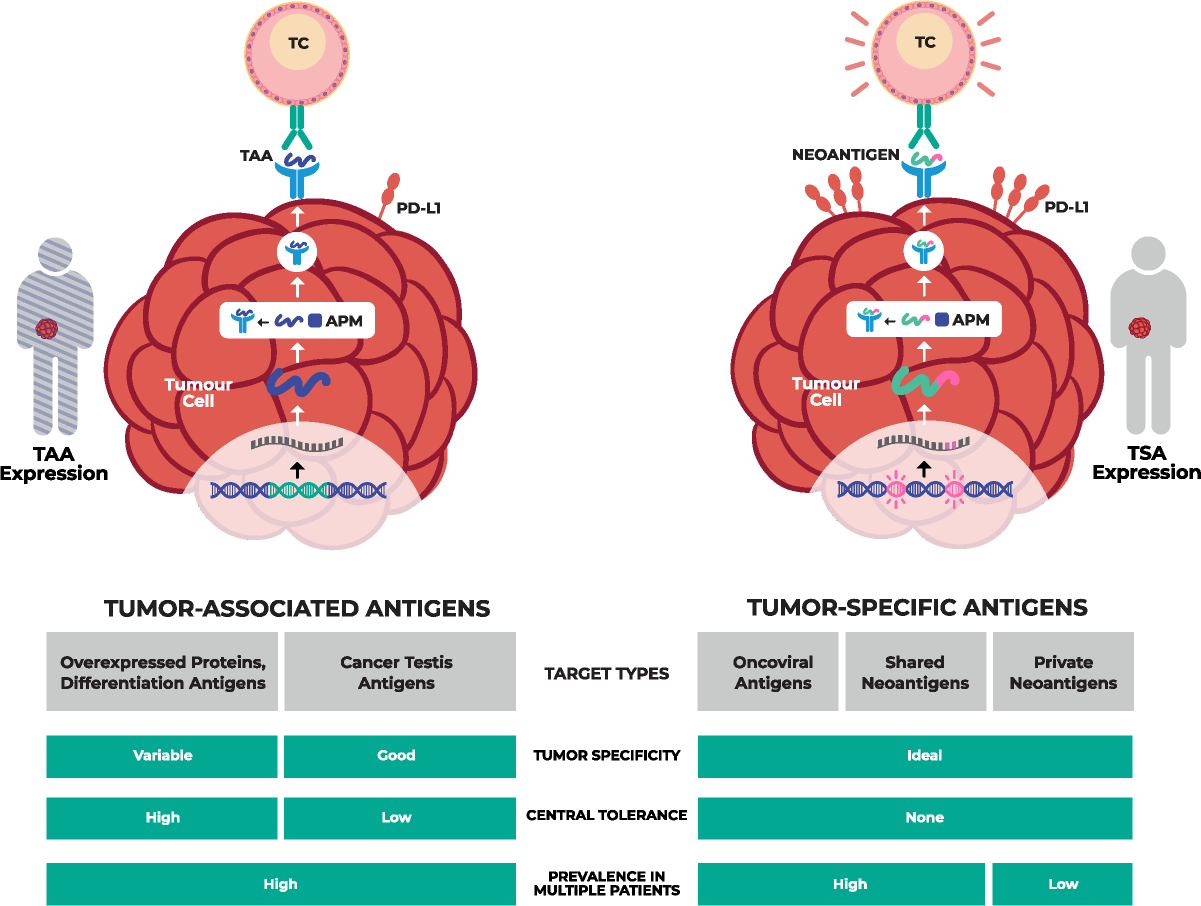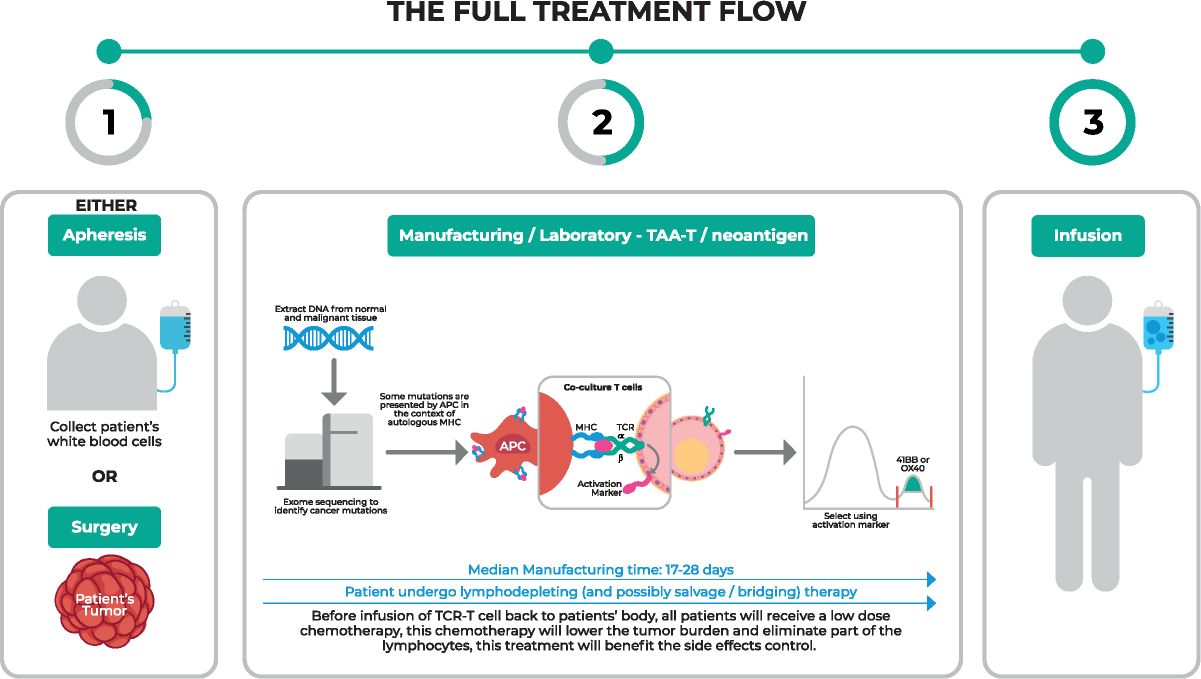

There are two major classes of tumor antigen which are targeted by T cell immunotherapies – private antigens and public shared antigens. 53 Public shared antigens are common to multiple patients and are split into two categories:
There are a number of key diferences between TSAs and TAAs. These diferences need to be carefully considered when selecting a target antigen. This is a critical step in new agent development, with poorly selected antigens (e.g. with poor expression level or immunogenicity) considered a primary reason for preclinical study failure.

Targeting tumor-associated antigens (TAAs) is a promising approach for cancer immunotherapy. One of the main advantages of targeting TAAs is that it can minimize the of-target toxicities of conventional systemic cancer therapies, to include hematopoietic stem cell transplantation, while providing efective tumor cell cytotoxicity. TAAs can be targeted using peptide vaccines or by cellular approaches. TAAs can be broadly categorized into aberrantly expressed selfantigens, mutated self-antigens and tumor-specific antigens (TSAs).
Several technologies exist to generate transgenic mice and cell lines that express human TAAs, TSAs, human leukocyte antigen (HLA), or oncogenic or immune checkpoint targets. Selecting the appropriate model is not always straightforward and depends on the experimental immunotherapy strategy, including which tumor targets will be engaged and the specific immune system components that will be activated. 54
A better understanding of the available types of models for assessing TAA/TSA-targeting agents increases the chances that the optimal model for your experimental immunotherapy studies will be selected, therefore providing the best opportunity for success.
Neoantigens, which are non-autologous proteins with individual specificity, are generated by non-synonymous mutations in the tumor cell genome. 55 Owing to its strong immunogenicity and lack of expression in normal tissues, it is now an important target for tumor immunotherapy.
Neoantigens, a class of tumor-specific antigens, difer from the traditional tumor-associated antigen (TAA). TAA is not unique to tumor tissue as it is also present in normal tissues; it is highly expressed in proliferating tumor cells expressing HER2, MART-1, MUC1, and MAGE. 56 However, in vivo experiments by Prehn et al. 57 showed that antigens that elicit strong tumor rejection tend to exhibit strong individual specificity. Therefore, compared to TAAs, neoantigens possess stronger immunogenicity and higher afnity toward MHC, and are not afected by central immunological tolerance.
